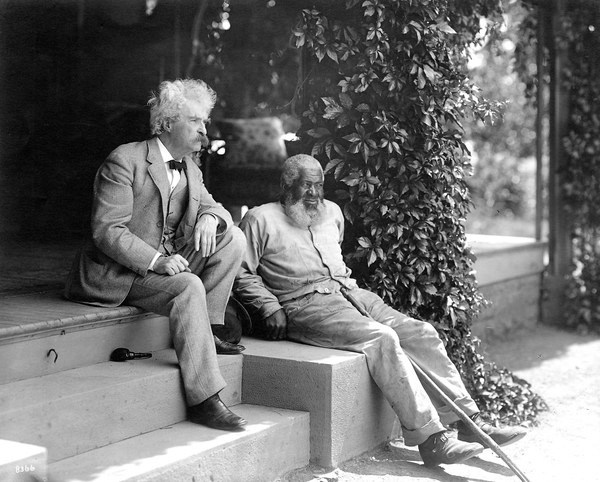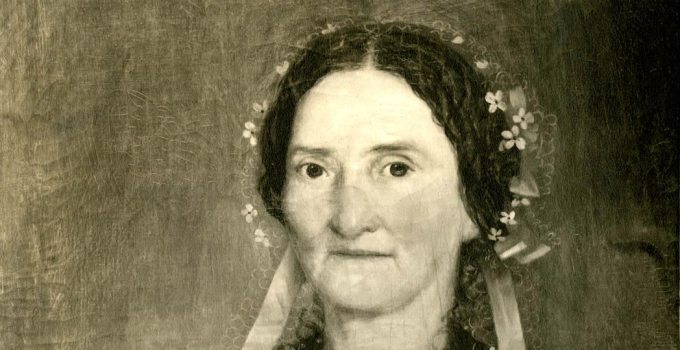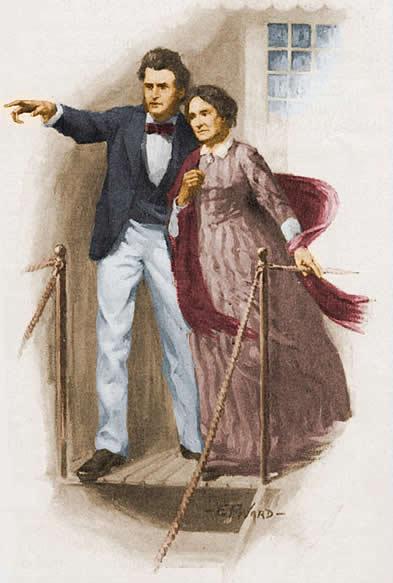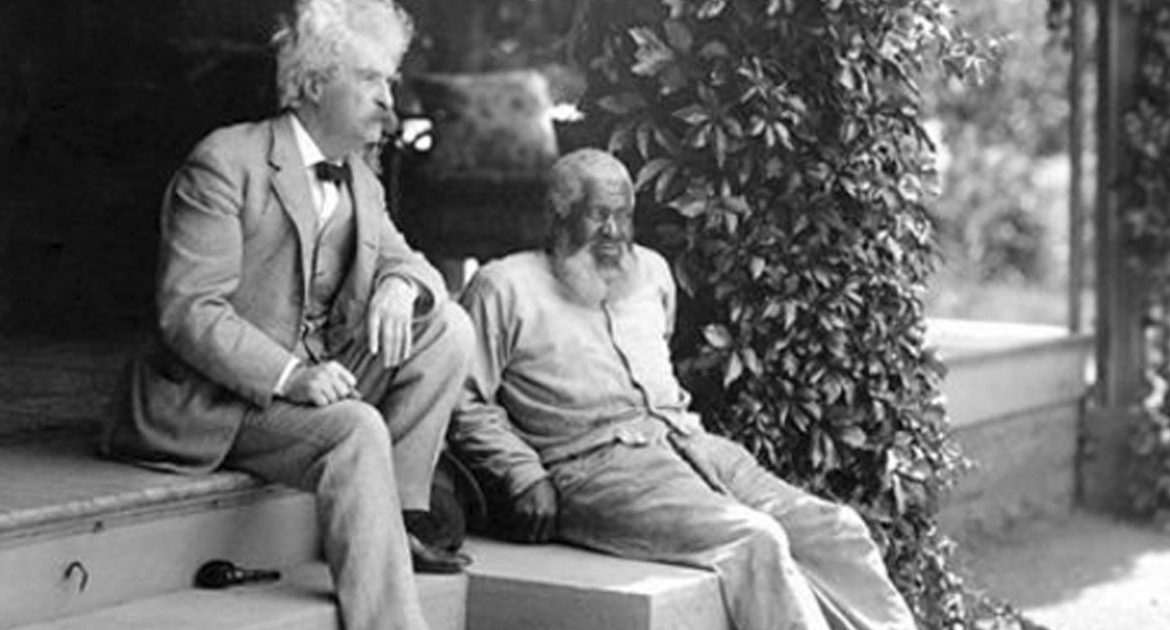Samuel Langhorne Clemens, better known as Mark Twain (November 30, 1835–April 21, 1910), is celebrated as America’s greatest humorist — from his irreverent advice to little girls to his snarky stance on creativity to his masterwork on masturbation. But underpinning his winsome wit was piercing insight into the human spirit and all its perplexities. From The Autobiography of Mark Twain: Volume 1 (public library) — which also gave us Twain on how morality and intelligence hinder each other — comes a moving anecdote about how his mother taught him the essence of empathy.

Half a century before “African American” came into popular use as a politically dignified term, Twain recounts his childhood friendships with black slaves:
All the negroes were friends of ours, and with those of our own age we were in effect comrades. I say in effect, using the phrase as a modification. We were comrades, and yet not comrades; color and condition interposed a subtle line which both parties were conscious of, and which rendered complete fusion impossible. We had a faithful and affectionate good friend, ally and adviser in ‘Uncle Dan’l,’ a middle-aged slave whose head was the best one in the negro-quarter, whose sympathies were wide and warm, and whose heart was honest and simple and knew no guile. He has served me well, these many, many years. I have not seen him for more than half a century, and yet spiritually I have had his welcome company a good part of that time, and have staged him in books under his own name and as ‘Jim,’ and carted him all around — to Hannibal, down the Mississippi on a raft, and even across the Desert of Sahara in a balloon — and he has endured it all with the patience and friendliness and loyalty which were his birthright. It was on the farm that I got my strong liking for his race and my appreciation of certain of its fine qualities. This feeling and this estimate have stood the test of sixty years and more and have suffered no impairment. The black face is as welcome to me now as it was then.

Twain with his longtime friend John T. Lewis, of whom the author remarked: ‘I have not known an honester man nor a more respect-worthy one.’ Lewis is said to have inspired the character of Jim in ‘Huckleberry Finn.’
Twain’s account of these complex dynamics is both sweet and heartbreaking in bespeaking the innocent, impressionable ways in which children absorb the beliefs and norms of their culture — as well as the manipulation tactics that the dominant institutions of culture employ in instilling and maintaining those beliefs. A lifelong critic of religion’s capacity to corrupt the human spirit, Twain writes:
In my schoolboy days I had no aversion to slavery. I was not aware that there was anything wrong about it. No one arraigned it in my hearing; the local papers said nothing against it; the local pulpit taught us that God approved it, that it was a holy thing, and that the doubter need only look in the Bible if he wished to settle his mind — and then the texts were read aloud to us to make the matter sure; if the slaves themselves had an aversion to slavery they were wise and said nothing.

Portrait of Clemens’s mother, Jane Lampton Clemens, by Edwin Brady (Vassar College Library)
Even though Twain recalls seeing no abuse of slaves in his hometown of Hannibal in pro-slavery Missouri, he recounts the story of one particular boy and how a simple, pause-giving remark from Twain’s mother — a testament to how such figures quietly but monumentally shape creative geniuses — suddenly opened his eyes to the culturally condoned atrocity of slavery and taught him a lifelong lesson about compassion:
There was, however, one small incident of my boyhood days which touched this matter, and it must have meant a good deal to me or it would not have stayed in my memory, clear and sharp, vivid and shadowless, all these slow-drifting years. We had a little slave boy whom we had hired from some one, there in Hannibal. He was from the Eastern Shore of Maryland, and had been brought away from his family and his friends, half way across the American continent, and sold. He was a cheery spirit, innocent and gentle, and the noisiest creature that ever was, perhaps. All day long he was singing, whistling, yelling, whooping, laughing — it was maddening, devastating, unendurable. At last, one day, I lost all my temper, and went raging to my mother, and said Sandy had been singing for an hour without a single break, and I couldn’t stand it, and wouldn’t she please shut him up. The tears came into her eyes, and her lip trembled, and she said something like this—
“Poor thing, when he sings, it shows that he is not remembering, and that comforts me; but when he is still, I am afraid he is thinking, and I cannot bear it. He will never see his mother again; if he can sing, I must not hinder it, but be thankful for it. If you were older, you would understand me; then that friendless child’s noise would make you glad.”
It was a simple speech, and made up of small words, but it went home, and Sandy’s noise was not a trouble to me any more. She never used large words, but she had a natural gift for making small ones do effective work. She lived to reach the neighborhood of ninety years, and was capable with her tongue to the last — especially when a meanness or an injustice roused her spirit.

Clemens on a river journey of ‘wonder and delight’ with his mother; illustration from St. Nicholas, 1916, color-tinted by Kent Rasmussen, 2004
Twain’s mother went on to inspire a number of characters in his beloved novels, including Aunt Polly in Tom Sawyer, where Sandy also made a cameo under a different name. Her penchant for small words may have been what prompted Twain to advise in his list of literary offenses: “Use the right word, not its second cousin… Eschew surplusage… Employ a simple and straightforward style.”
If you haven’t yet read The Autobiography of Mark Twain, do yourself a favor — Twain spent several decades writing it, but never finished in his lifetime and forbade his heirs from publishing the manuscript for 100 years after his death. The century-long wait was well worth it.
Also see Brené Brown the difference between empathy and sympathy.






